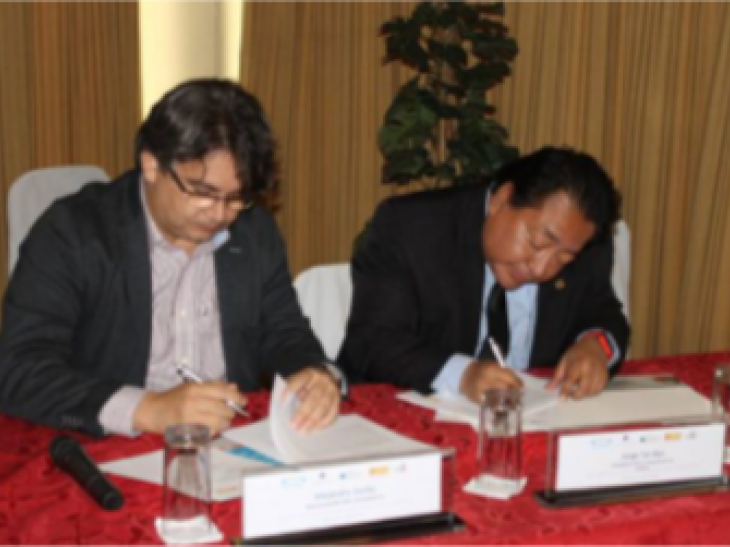
CONADI, CONRED and ASB promote inclusive risk management in Guatemala
On October 26, the National Council for the Attention of Persons with Disabilities (CONADI) and ASB Germany signed a cooperation agreement whose purpose is to promote inclusive risk management. The agreement was signed by the representative of ASB for the Latin American office, Alejandro Zurita, and by Mr. Jorge Enrique Yat Max, president of CONADI.
ASB is an organization based in Germany, which works on issues of health, first aid, childhood, disability, services for older adults, and in its area of international cooperation serves an office for Latin America.
CONADI is the coordinating, advising and driving entity that influences the general policies of the State, to ensure compliance with the human rights and fundamental freedoms of persons with disabilities in Guatemala. One of the strategies of CONADI to advance in the fulfillment of the rights of persons with disabilities has been the signing of agreements with State institutions and with international cooperating organizations, in order to link the issue of disability in programs, projects, plans of each entity.
In fact, CONADI and CONRED also signed a collaboration agreement in March of this year to encourage people with disabilities to be included more and taken into account in emergency situations.
It should be noted that ASB and CONADI have already carried out several actions jointly in Guatemala and this alliance aims to complement the work of each institution with mutual advice and the incorporation of issues related to inclusive risk management.
At present, ASB implements activities of three projects in Guatemala, one of them regional, which includes the countries of Nicaragua, El Salvador, Honduras and Guatemala. In this regional project, ASB's partners in Guatemala are the National Association of the Blind and Ajquen, respectively, focused on mobilizing people with disabilities and older adults on the subject. In addition, ASB also collaborates with other international organizations with training on integrated disaster risk management in the framework of two projects funded by the European Union Directorate General for Humanitarian Aid and Civil Protection (ECHO). In a disaster preparedness project, close to completion, work has been done, together with COOPI and GVC, in the departments of Totonicapán and Quetzaltenango. In the other project, carried out jointly with Action Against Hunger, Trocaire, GVC, MdM, TSF and ASB, this organization is also promoting inclusion, specifically in the field of food security (in Huehuetenango, Quiche and Chiquimula).


